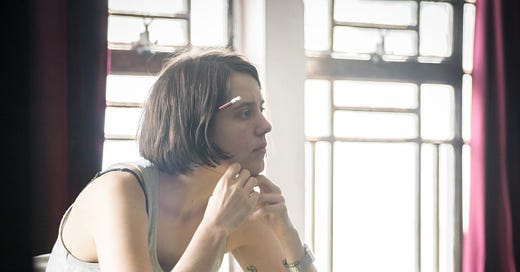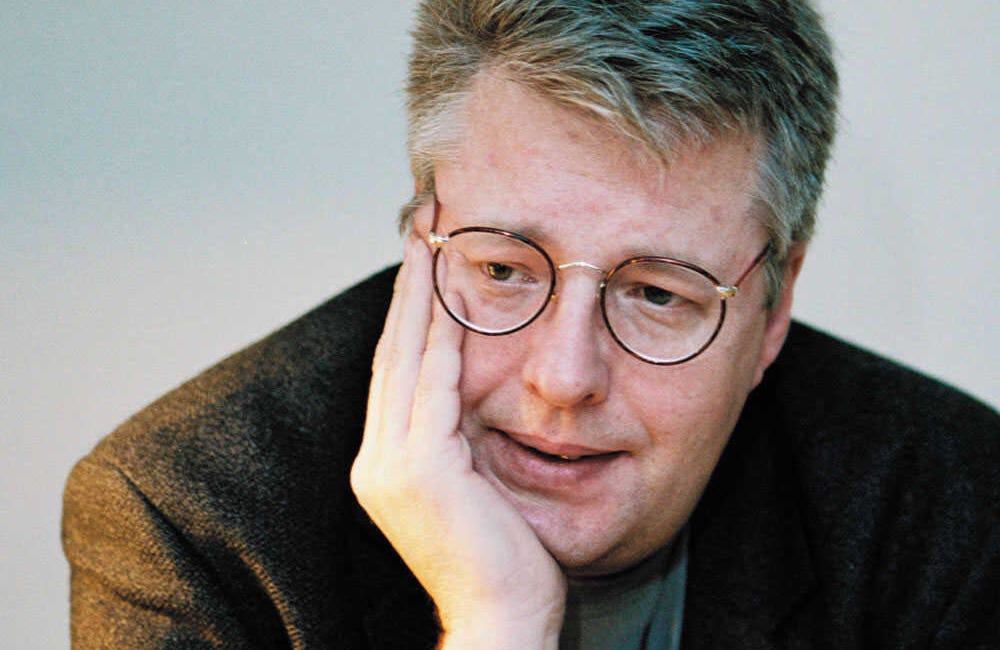You're Not Asking Big Enough Questions About Your Art
An interview with dramaturg Nadia Townsend about the ethics of acting (Mad Max: Fury Road, Thor: Love and Thunder)
Season 4 of the Artwell podcast is available now! I studied Mad Max director George Miller and to find lessons that are relevant for modern creatives.
Nadia Townsend is a dramaturg known for her work on Mad Max: Fury Road and Thor: Love and Thunder. If you’re wondering what a dramaturg is, don’t worry, you aren’t alone. On her website, Nadia writes that:
“Dramaturgy is the study of dramatic composition. Dramaturg literally means drama worker, a title more often found in the theatre. As a film dramaturg I ‘work the drama’ through the rehearsal process. It is neither, director, writer, nor acting teacher, but rather a role which works with the essential elements of the narrative and gets all the players on the same page.”
I got the chance to speak with Nadia about her approach as a dramaturg and the big questions around acting that she’s been pondering for 20 years, and will continue to ponder for the rest of her life.
If you’d like to listen to the full interview where Nadia shares stories about Fury Road and how the questions she’s asking influenced her approach, you can find it on Apple Podcasts, Spotify, or wherever you get your podcasts.
*The below has been edited for pacing and clarity.
From my understanding, your approach as a dramaturg is very focused on the physical aspects of acting. Is Practical Aesthetics influential on your process?
Practical Aesthetics is the philosophical basis with which I do everything, and then I've gone out to try and find other modes of working. The guy that works really closely with George Miller, Nico Lathouris, who co-wrote Fury Road and Furiosa, is a dramaturg. I've known him for 25 years or something and we worked as a dramaturgy team on Fury Road. He and I really aligned on the philosophy of Practical Aesthetics because it was really tangible, but the way that he explains it is beyond just the practical way of approaching this art form. It became more of an ethical question for Nico. He would say, I don't understand how you can ethically say that you become someone else. How can you say that you know what it would be to be somebody else? It seems unethical to say that. It became this big ethical question about how we engage with this art form. If we're all searching for truth, then what is truth in fiction? What does that actually mean? Beyond that, when you go from the 3D medium of being on set to the 2D medium of a screen, and then back to the 3D experience of the audience, what are you talking about when we're talking about truth? These big questions about truth in fiction and how they coincide or work together; what is that? What is it when we step into this art form, what are we actually doing? We have these big questions and I think George Miller brings these people into his world that engage in these kinds of big existential questions, and questions about art. He brings them in and gives them the time and space to work with these theories and these questions and rolls all of that into his films. He had this place up in Kings Cross, this beautiful building – it was like an old cinema, and that's where the Kennedy Miller Mitchel office was. When I was working there with Nico at one point, every Wednesday, George had this philosopher come in and sit down and work with whoever wanted to work with him on these massive philosophical questions, just as part of the thing that you do. I think there's something in that approach to trying to go deeper and more detailed and think bigger – you see how that unfurls in other things like the details of the War Rig, or costumes, or new approaches to camera, or different ways of scheduling these epic scenes, or whatever. Then it comes right back to this idea of working with actors and how you work with actors. And even though I think fundamentally, Nico and George think completely differently about drama, they've worked together for 20 something years in that mode. That's such a fascinating approach to a medium that feels so fast paced. To go, how far can you go? How deep can you think? How much can we push this form? And even though I don't necessarily understand what you're talking about, it sounds really interesting. Can we try and do that?
How do you make that environment productive? If you're wrestling with these big questions that have no right answers with two people who have two differing perspectives, you could in theory go around and around and around forever. How do you make sure you're coming to conclusions at least for the thing that you're working on in order to move forward with that project?
I think it's about not being afraid of not having an answer.
Can you explain that a little more?
I wonder if it's about not prioritizing the answer over the quality of the question. A lot more interesting results come from a really high quality question that is super difficult to answer and requires a little bit of swirling and back and forth. I have no idea how to solve that before you have got to make a decision. I think it's about not being afraid of that process. Ultimately, you've got someone who's super skilled, is capable of making a decision, but is deeply curious about the possibilities and the options. Then you surround yourself with people who are also deeply curious and trying to push form, you attract those people. Then I think you end up with something really interesting.
You said something that's ringing in my head; it’s not about the answers, but the quality of the question that you are asking. Are there any big questions about the process that you are still thinking about today?
Nico and I have been having these conversations for 25 years now and I don't think they'll ever stop. Every time we come back to something that we agree on, then we loop out of it again into something else that completely fractures. Then we have to find our way back or just go, “okay, that's it for today”. We've done it for the last 25 years and I could do it forever. I feel like it's such a gift to have someone ask you questions that you have to spend years trying to answer. The big questions when I met Nico, for me as an actor, were very much about what is truth in fiction and what does it mean to engage in it? How can I care as much as these words on a page tell me I need to care? These are the big questions I'm still dealing with. How can we, in film, work with the technical requirements and schedules and controlled environments of a film set and allow a process that requires everyone to breathe and not know what's coming next? How can we cultivate spontaneity in the truest sense so that when we go out there, I know what I need to do, I know where I need to get to, but the way I'm going to do that is up to the moment? There's all sorts of big questions around that. And does it really matter? Why not just go out there and do some acting and shut up and get it done? After having an hour long conversation with Nico, I'll go like, someone that comes from a different point of view would just go, “oh my God, shut up. Just do it. Stop talking about it, just do it.” There's an argument for that as well. And there's a big question around the ethics of acting and what we do when we're engaging with another human being in drama. Those are my big questions.
I read somewhere that when you met Nico it made you crave a deeper meaning in what you were doing. In the 25 years since that has happened, have you found that deeper meaning?
On some days. I think I'll forever be searching for it. I had that search going anyway and when I met him, I felt like I found a fellow traveler. I felt like I found someone who was encouraging of the questions that I was trying to ask. At that point, I was trying to even articulate the questions and I met someone who had already been not only asking the questions, but answering them in practice for 25 years or whatever. I think that's a forever search.
My last question that I ask everybody at the end of every interview is what does it mean to do art well?
I think more and more, the older I get, I think it's about the capacity to listen deeply, ask really great questions, and to practice answering them in whatever form you're working in.
Thanks for reading! If you haven’t already, make sure you subscribe to the newsletter for more interviews that help you become a more thoughtful artist. If you want to learn more about George Miller, you’ll like Season 4 of the Artwell podcast where I studied his career and interviewed his collaborators to find lessons that are relevant for modern creatives.
Does Your Art Mean Anything If No One Sees It?
What George Miller taught me about the audience's role in your art.
Why Does It Feel Like There's Less Great Art?
What Fred Mandel taught me about the current state of art.







